This is a bilingual post - scroll down for English :-)
Un diwrnod braf o Fedi, bron tri deg o flynyddoedd yn ôl, cerddais i i mewn i ganolfan Addysg Gydol Oes ar Severn Rd yng Nghaerdydd, lle ro’n i’n byw, ar gyfer fy nosbarth Cymraeg cyntaf eirioed. Roeddwn i wedi pori trwy lyfr Heini Gryffudd Welsh is Fun ac roeddwn i’n chwilfrydig
Cerddais lan grisiau cerrig yr adeilad a gofynodd am ble i fynd ar gyfer y dosbarth Cymraeg i ddysgwyr newydd sbon. Roedd rhanfwyaf y grŵp wedi cyrraedd yn barod ac eisteddais i lawr ac aros i weld beth fyddai’n digwydd nesaf.
Derec Brown oedd yr athro. Dyn ffraeth ac allblyg. Dim ond ar ôl y pedwerydd sesiwn sylweddolais i mai nid unrhyw hen Derec Brown oedd hwn ond Y Derec Brown a ganodd gyda’r bandiau Racaracwyr a Hergest in y 70au ac 80au. Roeddwn i’n cael fy nysgu gan seren y sîn roc Cymraeg!
O’n i wastad wedi bod yn un gwael gyda ieithoedd - o leiaf dyna beth o’n i’n ei feddwl. Ond mewn gwirionedd roeddwn ni wedi bod yn ddiog a di-hid. Ond pan mai fi oedd wedi penderfynu rhoi tro arni newidiodd bopeth. Diflanodd y difaterwch o ddyddiau ysgol ac o’n i wrth fy modd gyda’r cwmni ffraeth a chyd-dynnu yn y grŵp a, chyn hir, daeth fy nosbarth Cymraeg yn uchafbwynt yr wythnos.
Ar ôl datwneud y rhwystrau oedd yn fy atal rhag dysgu yn yr ysgol roedd fel petai’r gwaith dysgu yn gwneud popeth ar ei ben ei hunan heb fawr o ymdrech ar fy rhan i. O’n i bron yn gallu teimlo’r cysylltiadau yn f’ymenydd yn cryfháu ac ymledu.
Roedd y wers hon yn hollbwysig i fi. Roedd f’amser yn yr ysgol wedi pwysleisio mai ymdrech sydd yn creu llwyddiant. Mae hyn dim ond yn hanner y gwirionedd. Dyma’r ffordd gall i ddysgu - datwneud y rhwystrau er mwyn i’r gwaith dysgu lifo i mewn. Neu allwch chi geisio wasgu cymaint o eirfa a gramadeg a gallwch chi i mewn i dy ben bach truan. Gadewch i’r ymenydd a’u cysylltiadau ymledu a chofio bod cymryd pleser yn allweddol er mwyn dysgu’n effeithiol.
Roedd y tymor drosto rhy fuan i fi ac roedd rhaid ffarwelio â fy bytis dysgu Cymraeg. Roeddwn ni’n eistedd mewn cylch ar ddiwedd y sesiwn olaf, nid dosbarth o ddysgwyr mwyach, ond criw o bobl oedd wedi dod yn ffrindiau trwy gyfrwng dysgu Cymraeg gyda’n gilydd.
Mewn saib yn ystod y clebran a chwerthin pwysodd Derec ymlaen ac edrych i mewn i fy llygaid gan ddweud, “Mae rhaid i ti wneud cwrs WLPAN.” Doedd dim clem ‘da fi am beth oedd e’n sôn.
Gair Hebraeg yw WLPAN sydd yn golygu ‘stiwdio’. Mae’r dull yn seiliedig ar ddysgu’r iaith trwy gyfrwng yr iaith rydych chi’n ei dysgu cyn gynted â phosib. Mae’n swnio’n chwithig ond mae’n hynod o effeithiol.
Pan cafodd Israel ei sefydlu daeth ffoaduriaid Iddewig o bob rhan o’r byd gan siarad ieithoedd fel Almaeneg, Yiddish, Rwsieg a llwyth o ieithoedd eraill. Fe ddaeth yn amlwg mai dysgu Hebraeg trwy gyfrwng Hebraeg oedd yr unig ateb ymarferol. Mae hyn yn golygu bod rhaid dysgu mewn ffyrdd gwahanol i’r arfer.
Mewn dosbarth Wlpan rydych chi’n dysgu sŵn y gair cyn deall ei ystyr. Mae’r glust yn clywed yn gliriach os dych chi ddim yn poeni am ei ystyr.
Mae’r system yn parchu bod angen ymarfer er mwyn dysgu felly bydd gair neu ymadrodd yn cael ei ailadrodd droeon mewn ffyrdd gwahanol er mwyn i’r gair lynu yn y cof.
Mae bod mewn ystafell gyda chriw brwd sydd i gyd yn wynebu’r un her yn magu cyd-dynnu ac egni.
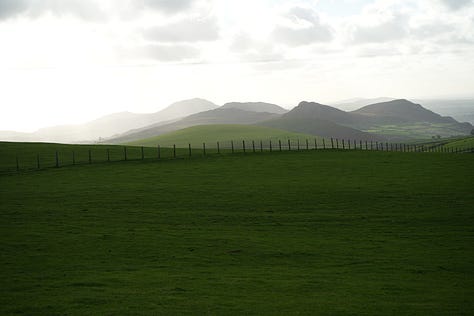
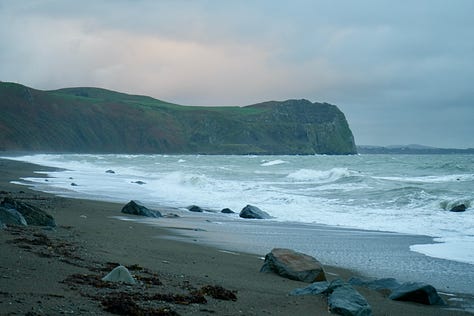

Geraint Wilson-Price oedd fy athro WLPAN cyntaf a dysgodd e ni mewn ffordd glir, chwareus a threfnus. Ond y wers fwyaf anodd oedd yr un fwyaf effeithiol. Criw brwd oeddwn ni ac yn aml iawn byddwn ni’n cyrraedd cyn i’r ganolfan agor eu drysau. Un bore cyrhaeddodd Geraint a rhoi stwr go iawn i ni am siarad Saesneg gyda’n gilydd wrth aros amdano. Cawson ni ein synnu clywed ein athro hoffus yn siarad â ni mewn ffordd mor llym ond roedd y neges yn glir. Roeddwn ni i gyd yn siarad Saesneg yn berffaith yn barod a doedd dim angen ei hymarfer arnon ni ac, wrth beidio bachu’r cyfle i ymarfer, roeddwn ni’n gwastraffu’r cyfle i gymryd un cam arall tuag at ddod yn rhugl. O’r diwrnod hwnnw ymlaen, Cymraeg oedd iaith gymdeithasol y dosbarth.
Roedd Geraint nôl i’w ffordd hamddenol a chlir mewn chwinciad ac roeddwn ni wedi dysgu gwers bwysig am ddysgu iaith a sut i drefnu ein hamser ac egni os ydyn ni wir o ddifri am droi’r Gymraeg yn rhan o’n bywydau.
Ar ôl dechrau doedd dim modd fy stopio. Ymunais i â’r cwrs nesaf a’r un wedyn ac ar ôl hynny es i ymlaen i baratoi ar gyfer yr arholiad TGAU ar gyfer oedolion ac, ar ôl hynny, pasiais i’r arholiad Uwch. Yn union fel Forest Gump doedd dim modd i fi stopio. Wedyn dechreuais i ddysgu Cymraeg fel tiwtor a, chredwch chi fi, does dim fordd well na dysgu pobl eraill er mwyn gwneud yn siwr bod eich treigladau i gyd yn y lle iawn (er bod ni i gyd yn gwneud camgymeiriadau) !
Mewn gwledydd fel Cymru, lle collwyd canran uchel o siaradwyr yr iaith, y mae haen o hiraeth dwfn o dan y wyneb ac mae nifer fawr o bobl trwy’r byd i gyd yn dioddef o’r trawma o golli iaith. Doeddwn i ddim wir yn ymwybodol o hyn nes i mi roi cyflwyniad ar ddwyieithrwydd mewn cynhadledd FEST (Federation of European Storytelling) yn Glasgow fis Mehefin diwethaf.
Camddeallais i fy niffyg gallu gyda ieithoedd pan yn ifanc fel diffyg talent neu allu ond dim ond esgus tila oedd hynny a adawodd i fi wneud y lleiafswm posib o ymdrech wrth ddysgu iaith arall. Doedd yr athrawon ieithoedd modern yn yr ysgol ddim yn ysbrydol iawn ond mae rhaid i mi gyfaddef mai arna i oedd y bai am beidio manteisio ar y cyfle.
Does dim modd i mi weud bellach mod i ‘ddim yn gallu dysgu iaith’. Rwy wedi llwyddo dysgu’r Gymraeg, Ffrangeg a Phortiwgaleg ac, fel rhan o brosiect creadigol newydd , byddaf ar daith yn adrodd hanes Merch y Llyn o Lyn y Fan Fach yn ddwyieithog (Cymraeg a Saesneg) ar gyfer cynulleidfaoedd fydd yn gymysgedd o bobl ddi-Gymraeg, dysgwyr a siaradwyr rhugl. Rydym wedi datblygu dulliau cyflwyno stori heb gyfieithiad sydd yn addas ar gyfer pawb.
Bydd Bando ar daeth o Fedi ymlaen. Cliciwch yma er mwyn gweld y daith
Sut i lwyddo dysgu Cymraeg (neu unrhywbeth arall)
Byddwch yn ‘iselgeisiol’ Mae hyn yn swnio’n od ond mae’n gweithio. Mae digon o annogaeth yn y byd sydd ohoni sydd yn dweud wrthon ni am fod yn well, gweithio’n galetach a gwneud mwy o ymdrech. Ond pryd dŷn ni’n gweld rhywun medrus wrth ei waith mae’n defnyddio’n union digon o egni a dim mwy a, fel canlyniad, mae’r gwaith yn edrych yn hawdd ac yn bleserus. Gweler llyfr Tiny Habits gan BJ Fogg er mwyn deall sut i wneud mwy wrth wneud llai.
Ymarfer yw’r unig ffordd i wella. Y mae cysondeb yn trechu ymdrechion arwrol bob tro. Mae’r cerddorion sydd yn darllen hyn yn gwybod hyn i gyd yn barod. Ymarfer cyson, llawen, a chlir yw’r unig ffordd ymlaen. Does dim byd arall yn tycio.
Cymuned Ffeindiwch eich llwyth a byddan nhw yn dy gynnal, doed a ddelo. Efallai eich bod chi’n dysgu Cymraeg, meistroli’r tango, rhedeg marathon neu bobi piciau ar y maen gorau’r byd - bydd eich llwyth yn dy ddathlu a dy baratoi ar gyfer y cam nesaf.
Dyfal Donc A Dyr Y Garreg Dyma i ti ddull handi ar gyfer dysgu geirfa. Ffeindiwch lyfr nodiadau bach gyda llinellau ac ysgrifennwch geiriau newydd ar ochr chwith y dudalen ar cyfieithiad ar yr ochr dde. Cadwch at restrau byr o pedwar neu bump o eiriau a gorchuddio’r ochr Saesneg. Cofia am adael bwlch o gwpwl o linellau rhwng pob rhestr fach.
Geirfa heb ddagrau Pryd mae pum munud sbar gyda ti, tynnwch eich llyfr bach mas a chanolbwyntio ar gasgliad bach o pedwar neu bump o eiriau gan orchuddio’r ochr y geiriau dych chi’n bwriadu eu dysgu yn hytrach na cheisio dysgu a chofio y dudalen i gyd. Ewch trwy’r rhestr fach o bedwar neu bump o eiriau a cheisio eu cofio.
Cenedl Geiriau - ond pa un? Os mai person iaith gyntaf Saesneg ydych chi (fel fi) mae’n dod fel tipyn o sioc sylweddoli bod gan enwau genedl. Hyd a gwela i does dim rheswm dros hyn ond mae rhaid ymdopi ta p’un. Dyw hi ddim yn gwneud sens o gwbl bod ‘ci’ yn wrywaidd a ‘cath’ yn fenywaidd ond dyna fe!
Er mwyn helpu fy hun gydag enwau rwy’n dychmygu het hen ffasiwn Gymreig ar bethbynnag sydd yn fenywaidd a phêl rygbi ar ben popeth wrywaidd. Rwy’n ymddiheuro am fy niffyg dychymyg ac rwy’n siwr byddwch chi’n gallu creu delewddau llawer mwy cofiadwy a defnyddiol na fy rhai i. Gwnewch eich delewddau yn fawr, dros ben llestri a lliwgar.
You made it! Here’s the English language version of the article…
Hi Everyone - this post is about my bilingual performance company Bando. We will be in rehearsals soon and our premiere will be in a brand new theatre space in YMa in Pontypridd. Our first show will be on the 14th of September. Tickets available here.
One bright September day, almost thirty years ago, I walked into the Severn Rd Adult Education building in Canton in my home town of Cardiff for my first ever Welsh class. I had looked through Heini Gryffudd’s book Welsh is Fun and was curious.
I walked up the stone steps to the first floor of the Adult Ed building and was directed to the Welsh classroom. Most of the group had already arrived and I sat down on one of the school chairs and waited to see what would happen next.
Our teacher was Derec Brown who was encouraging and affable. It was only a few sessions later that I worked out this was no ordinary Derec Brown but THE Derec Brown who played with Y Racaracwyr and Hergest in the 70s and early 80s. I was being taught Welsh by a rock star!
I had always been bad at languages, or so I thought. In fact I had only been lazy and resistant. Now that it was my idea to learn a language everything changed. The inertia I had experienced at school disappeared and I enjoyed the camaraderie and mutual support of the group and my Welsh lesson became one of the highlights of my week.
Once I had dismantled the mental barriers to learning that I had put in place the learning just happened by itself and I was, bit by bit, putting more and more language together so that I could almost feel new synapses branching out in my brain.
This was a big learning for me. My schooling had always told me that effort was required in order to get results. This is only half-true. In fact the really smart way to learn is to melt the resistance to learning rather than squeeze in as much vocabulary and grammar as you can. Our brains expand to take in the learning and, for as long as it is pleasurable, we will be learning at our best.
All too soon it was the end of the course and time to say good-bye to my Welsh learning buddies. In that last session we were sitting in a circle, no longer pupils and teacher, but a bunch of people who had got to know each other through the medium of learning Welsh.
There was a pause in the chat and Derec leaned forward towards me and said the fateful words, “You have to do the WLPAN course.” I had no idea what he was talking about but I was definitely going to find out.
So, a few weeks later, I went to the Welsh Language Teaching Centre in Cardiff, put my money down and, not long after that, I was in my first ever WLPAN lesson.
So what is WLPAN? The word is Hebrew, not Welsh, and means ‘studio’. It is a target language learning system which means that, as soon as possible, all the teaching is done through the medium of the language you are learning. It sounds counter-intuitive but it really works. In my second year of WLPAN I was taught by Chris Rees who adapted WLPAN for Welsh learners.
Once the state of Israel was established and people arrived from all over the world speaking Yiddish, Russian, German and many other languages it was clear that teaching through the medium of the language that is being learnt is the only practical solution. This has some interesting consequences for how the language is taught…
You learn the noise of the word before you understand the meaning. Your ear is a lot cleaner when you don’t know what the sound means. The system respects that learning means practice so the word or phrase is repeated many times in various ways in order to help it stick.
Being in a room full of people all facing the same challenges breeds camaraderie and momentum.
My first WLPAN teacher was Geraint Wilson-Price who was playful, clear and methodical. But the best lesson he gave was also the hardest. We were a keen cohort and tended to turn up early. Before the teacher, in fact. One morning, a few weeks into the course, we were standing by the door waiting for Geraint to come and let us in. When he got there, he gave us a proper telling-off for speaking English together. We were startled to hear our, so far, friendly tutor give us a row but the message was very clear. We already spoke English and we were wasting a precious opportunity to practice the language we had committed to learn. From then on Welsh became the social language of the group. And our fluency and confidence increased.
Geraint was his friendly and energetic self as soon as we sat down in the classroom and we had learnt an important lesson about language learning and how we deploy our time and energy if we are serious about making Welsh part of our life.
Once I started I couldn’t stop. I signed up for the next course and then committed to the adult GCSE and then the Welsh Advanced Certificate. Just like Forest Gump, I couldn’t stop. I went on to teach Welsh to adults and, believe me, if you want to learn a language, teaching it is a really effective way because you, as the teacher, are meant to have the answers!
If you are interested in working on your Welsh (and there are thousands of people all over the world doing just that) I can highly recommend the National Welsh Language Centre at Nant Gwrtheyrn. I have taught a storytelling course there the last two years and the place is just glorious.
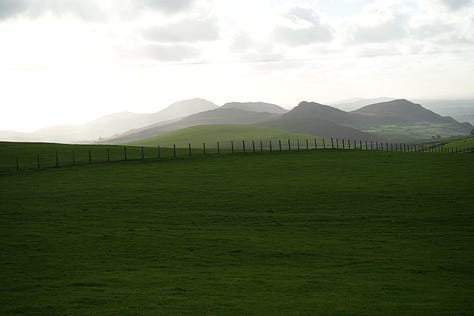
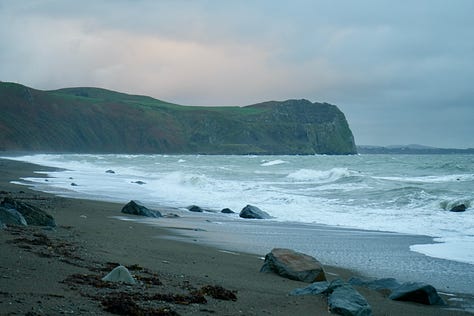

There is a substratum of language loss trauma in any community that speaks a minority language and this can often be a stumbling block for learners. However, once embraced, the learning of any language opens doors onto new worlds and experience.
Read Michael’s post about minority languages from his presentation at the Federation of European Storytellers Conference this summer
I had misunderstood my lack of success in modern languages as my own lack of ability or talent but that was just a convenient fib that allowed me to coast for years in schools that didn’t really teach me in the way that suited me, although it must be said that the fault for that must be at least 50% mine if not a lot more.
I can no longer maintain that I “can’t learn languages” having both learnt and taught Welsh as well as going on to speak both French and Portuguese. As part of a new creative project I am telling the story of Llyn y Fan Fach bilingually in Welsh and English, aimed at an audience that may have any level of Welsh fluency or none.
How to succeed in learning Welsh (or anything else)
Lower the bar This might seem counterintuitive but it really works. There is so much error-ridden encouragement to be better, work harder and expend more effort that we can be tempted to forget that when we see someone doing something well they are putting in exactly the right amount of effort into the task and no more. The result is that they make it look easy. Have a look at Tiny Habits by BJ Fogg to find out more.
Practice The only way to get better. Consistency is much better than heroic feats of concentration. Any musicians out there? Well, you know what I mean. Consistent, joyful, focussed, practice gets results. Nothing else will work.
Community Find your tribe and they will lift you up and support you. Whether it’s learning Welsh, mastering a martial art, marathon running or baking an amazing Dundee cake, your tribe will celebrate you and get you ready for the next great thing you’re going to do.
Bite Sized Learning And here’s a vocabulary learning hack for you if you’re learning a language. Get yourself a small, lined notebook and use it to keep new and interesting words in. Instead of making one long list of words and their translation on the page, do around four or five words with their translation and then leave a gap.
Vocabulary Hack When you have a spare five minutes, take out your book and focus on one set of four or five words, covering the side you want to learn. Take your time and let your brain access what it thinks might be the word in your target language. Gently work through the list of four or five until it feels solid and remember that you really have to persuade your brain to prioritise this task so bear in mind the tips above. Remember to celebrate your wins and ignore everything else.
Grammatical Gender Hack If you, like me, are a native English speaker it can come as a shock that many other languages have nouns that have grammatical gender. That’s right - in Welsh cats are grammatically female and dogs are grammatically male. Even more strange is that there are two ways of saying ‘table’ in Welsh, which are ‘bord’ and ‘bwrdd’. The first one is feminine and the second one is masculine.
Don’t try and make sense of it, just learn it. And here is how I remember the difference. When I am trying to learn a new noun I imagine the world in technicolour detail. If the noun is feminine I put an old-school Welsh lady’s hat on it and if its masculine I forefront a rugby ball in the picture somewhere. Do your own version and make the image big, bright, colourful, silly and rude and there’s a good chance that you will be able to remember the word.






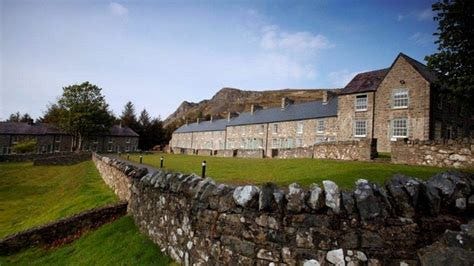
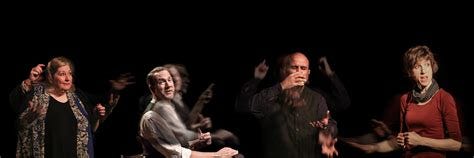
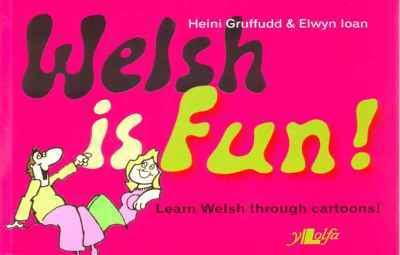


As someone who spent many hours on Duolingo trying to learn Welsh, I can tell you Duolingo is NOT the way to learn Welsh (at least not in isolation). I think that's because it does all the things outlined as failure points; there's no tribe to connect with, you're left on your own passion to push you through, and there's no one to help you understand what you don't understand (and there's a lot of it). I'd love to learn more, but perhaps Duolingo isn't the tool for me.
I love this! I completely agree with your language learning tips. When I studied Russian at university, I learned intonation early on—getting the music of the language means that you’ll more likely be understood even if your grammar isn’t perfect. Later, I learned Bulgarian by living in Sofia (and taking classes). The English-speaking foreigners and I tacitly agreed to speak only Bulgarian among ourselves. We did pass along misinterpretations, but we also learned the proper language faster.